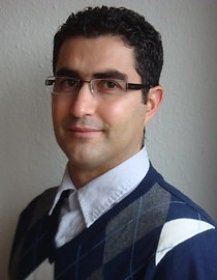Prof. Frank Neese and PD Dr. Harun Tüysüz participate in the new Collaborative Research Area SFB/TRR 247

The new Collaborative Research Area "Heterogeneous Oxidation Catalysis in the Liquid Phase" is concerned with catalysis research and nanotechnology. Under the umbrella of the Transregional Project (TRR), the University of Duisburg-Essen, the Ruhr University Bochum, the MPI für Kohlenforschung, the MPI CEC and the Fritz Haber Institute are now conducting research - supported by the DFG (Deutsche Forschungsgemeinschaft). Professor Frank Neese, head of the Department of Molecular Theory and Spectroscopy and PD Dr. Harun Tüysüz, leader of the group of Heterogeneous Catalysis and Sustainable Energy, are involved from the Max-Planck-Institut für Kohlenforschung.
The partners have applied for the funds together and now want to achieve the research goal quickly, efficiently and synergistically by sharing the resources.
Further information can be found in the press releases of the University of Duisburg-Essen and the Ruhr University Bochum.
(Press Release DFG, No. 17, 18.05.2018)
Tüysüz Group also participates in another exciting research project on the origin of the Earth with the Institute for Molecular Evolution at the University of Düsseldorf
The joined DFG project is titled “Transition metal nanoparticles: A missing link between early Earth and early life “. The scientists from the Tüysüz-group at the MPI KOFO and of the Institute of molecular Evolution of Professor Bill Martin of the University of Düsseldorf will explore CO2 reduction to CO and small organic molecules over nanostructured transition metal catalysts to find a correlation between the earth and the early life. Life arose some 4 billion years ago and the question of how and where life arose is one of the biggest questions in science and is of broadest interest to society in general. Origin of life research is marked by intense debate and there is a need for deeper interdisciplinary research. This project brings the biologists and chemists together to tackle one of the most challenging fundamental scientific questions. The project is supported by DFG with a funding of around 400.000 euro for three years.












